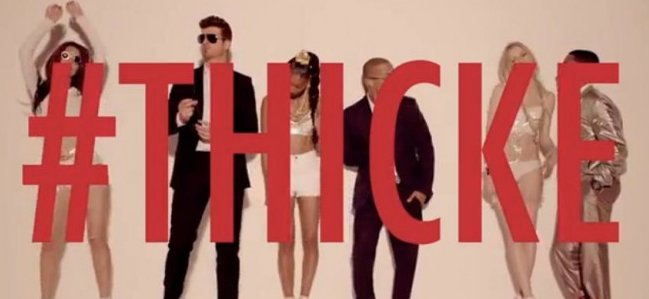3 Count: Blurred Times

Have any suggestions for the 3 Count? Let me know via Twitter @plagiarismtoday.
1: Robin Thicke Admits Drug Abuse, Lying to Media in Wild “Blurred Lines” Deposition
First off today, Eriq Gardner at The Hollywood Reporter Esquire reports that depositions made by Robin Thicke over the course of the “Blurred Lines” case have been made public and, in his official testimony, Thicke admitted to not actually writing the song and said that he was “high” when giving interviews that said the song was inspired by Marvin Gaye.
Thicke and others who worked on the song sued the Marvin Gaye estate after the estate alleged that the song was a copyright infringement of Gaye’s hit song “Got to Give it Up”. The estate, in its original claims, used statements by Thicke saying that he was wanting to create a song similar to Gaye’s to make their case.
Thicke, in his testimony claimed that he was high when giving those interviews, as well as other interviews around that time, and that Pharrell Williams wrote the whole song and that he was given a writing credit because he was “jealous”. Lawyers representing Thicke have pointed out that Thicke’s statements have no bearing on the legal arguments of the case and say that the Gaye estate is using them to distract from how weak their case is.
2: Eminem Suing New Zealand’s National Party for Allegedly Using His Song
Next up today, The Australian Associated Press is reporting that publishers representing the U.S. rapper Eminem are suing the National Party of New Zealand claiming that the party used his hit song “Lose Yourself” in an ad for Prime Minister John Key.
According to the publishers, Eminem was never approached about permission to use the song, which was used in a National Party ad with a rowing theme. However, the National Party denies any infringement and says that it received permission to use the song from an Australian publisher that had the rights to the song.
The National Party also claims that the song has been used repeatedly by other organizations without complaint but they are the first to be sued. This lawsuit is echoes of a 2004 lawsuit where Eminem sued Apple for using a song of his in one of their television commercials.
3: Second Actor Sues Google Over ‘Innocence of Muslims’ Movie Trailer
Finally today, Andrew Chung at Reuters is reporting that a second actor has filed a lawsuit against Google over the “Innocence of Muslims” trailer, alleging that Google has refused to block access to the video despite filing copyright notices against it.
The actor, Gaylord Flynn, claims that he has sent copyright notices to Google but the company has refused to remove copies of the film from its servers, despite a 9th Circuit ruling ordering it to. In 2012 the film was partially responsible for riots over its depictions of Islam and Flynn claims to have received death threats over the trailer, which he said he was tricked into participating in.
The lawsuit follows a, so far, successful lawsuit by fellow actor Cindy Lee Garcia, who also claims to have been duped into performing in the film, allegedly being told she was starring in an action movie, and also claims that she didn’t sign any waivers of her rights. Garcia won a judgment in the 9th Circuit claiming that, as an actor, she had a copyright interest in the work since she didn’t sign any waivers and that Google was required to remove all copies of the video featuring her. Flynn is now hoping for the same.
Suggestions
That’s it for the three count today. We will be back tomorrow with three more copyright links. If you have a link that you want to suggest a link for the column or have any proposals to make it better. Feel free to leave a comment or send me an email. I hope to hear from you.
Want the Full Story?
Tune in every Wednesday evening at 5 PM ET for the live recording of the Copyright 2.0 Show or wait and get the edited version Friday right here on Plagiarism Today.
The 3 Count Logo was created by Justin Goff and is licensed under a Creative Commons Attribution License.
Want to Reuse or Republish this Content?
If you want to feature this article in your site, classroom or elsewhere, just let us know! We usually grant permission within 24 hours.
